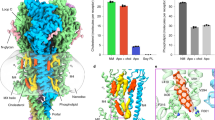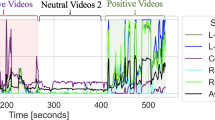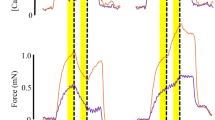Abstract
A MUSCLE can be made to contract by different stimuli. Thus, it may contract when pricked, when an electric current is passed through it, or if soaked in certain chemical substances. Among these, acetylcholine, when not used in excessively large quantities, has a reversible action and does not produce any alteration of muscular tissue, perhaps due to the fact that it plays a physiological part in the transmission of nervous influx from nerve to muscle.
This is a preview of subscription content, access via your institution
Access options
Subscribe to this journal
Receive 51 print issues and online access
$199.00 per year
only $3.90 per issue
Buy this article
- Purchase on Springer Link
- Instant access to full article PDF
Prices may be subject to local taxes which are calculated during checkout
Similar content being viewed by others
References
Scheiner, H., C.R. Soc. Biol., Paris, 140, 37 (1946).
Crivetz, D., Bull. Acad. Méd. Roumanié, 18, 36 (1946).
Rights and permissions
About this article
Cite this article
RUDEANU, A., BOTEZ, M. Muscular Contraction Induced by Acetylcholine and Aeration. Nature 165, 608–609 (1950). https://doi.org/10.1038/165608a0
Issue Date:
DOI: https://doi.org/10.1038/165608a0
Comments
By submitting a comment you agree to abide by our Terms and Community Guidelines. If you find something abusive or that does not comply with our terms or guidelines please flag it as inappropriate.



